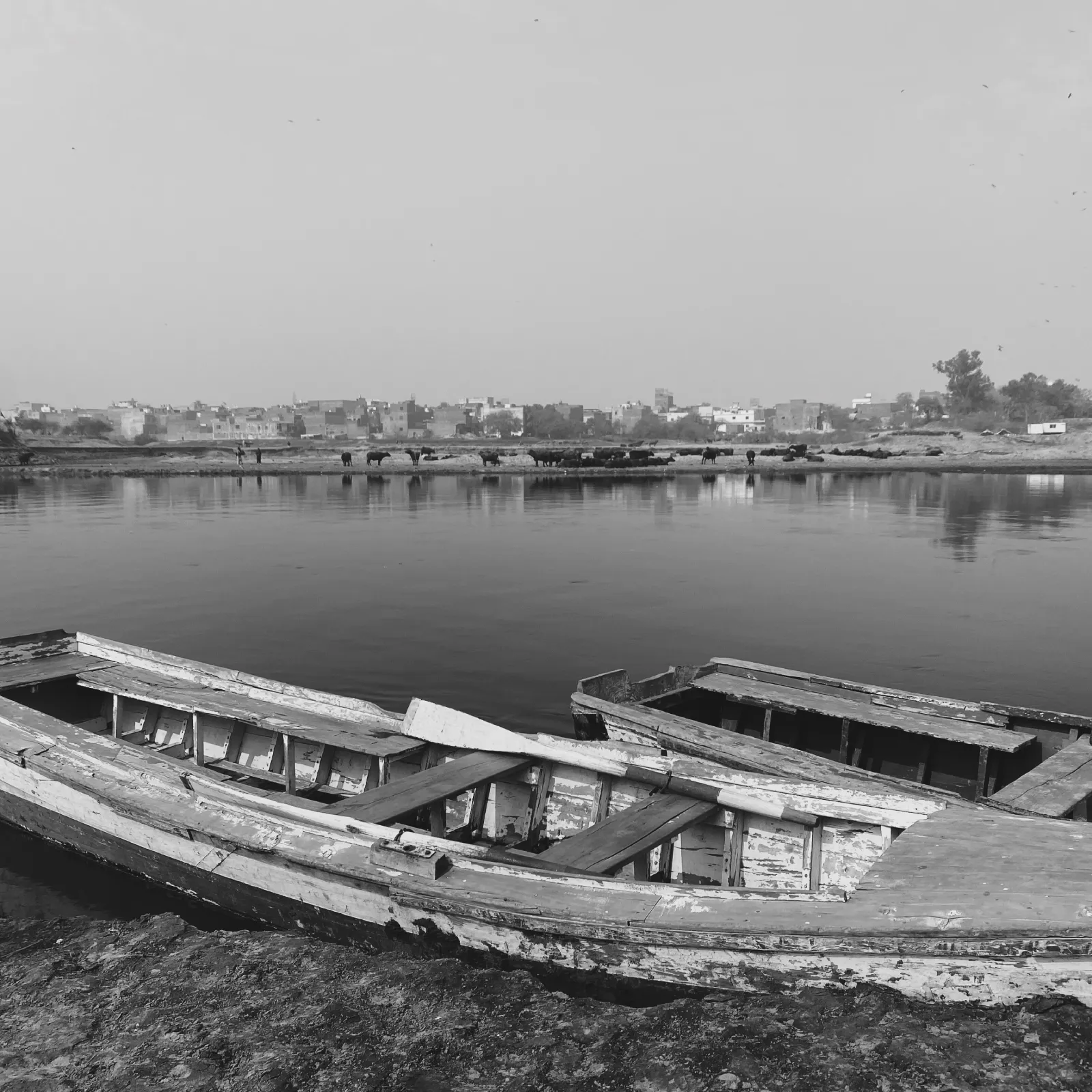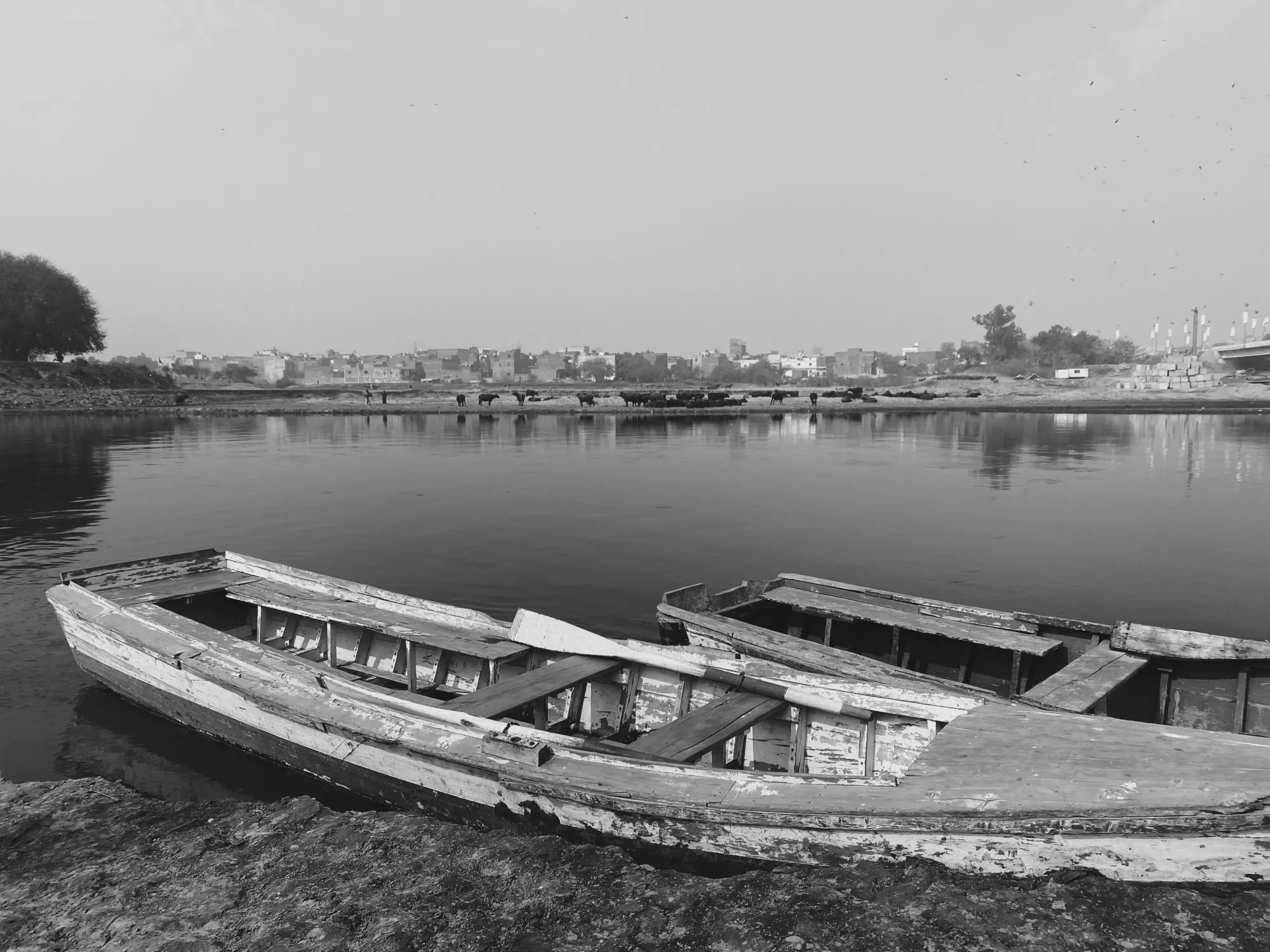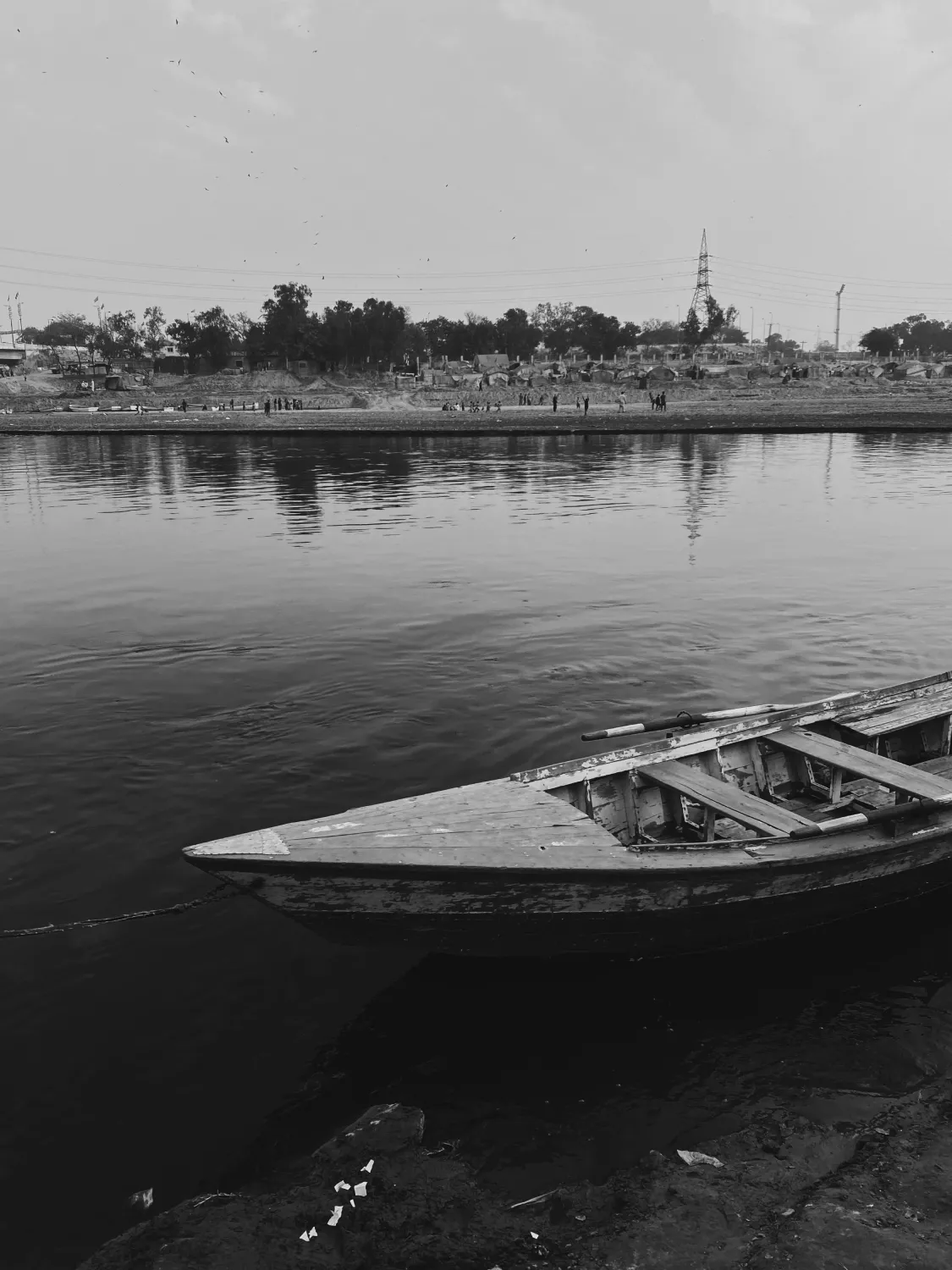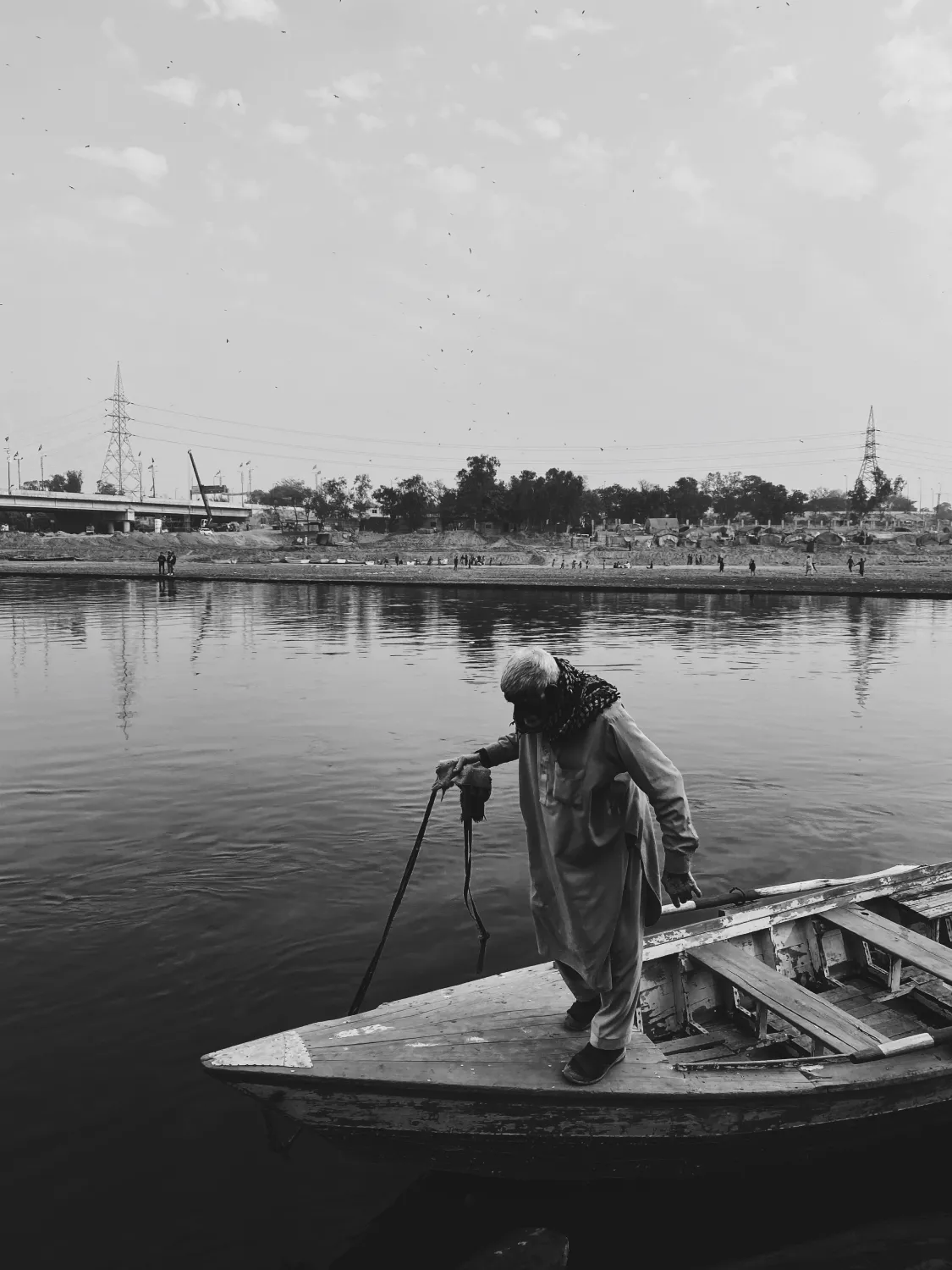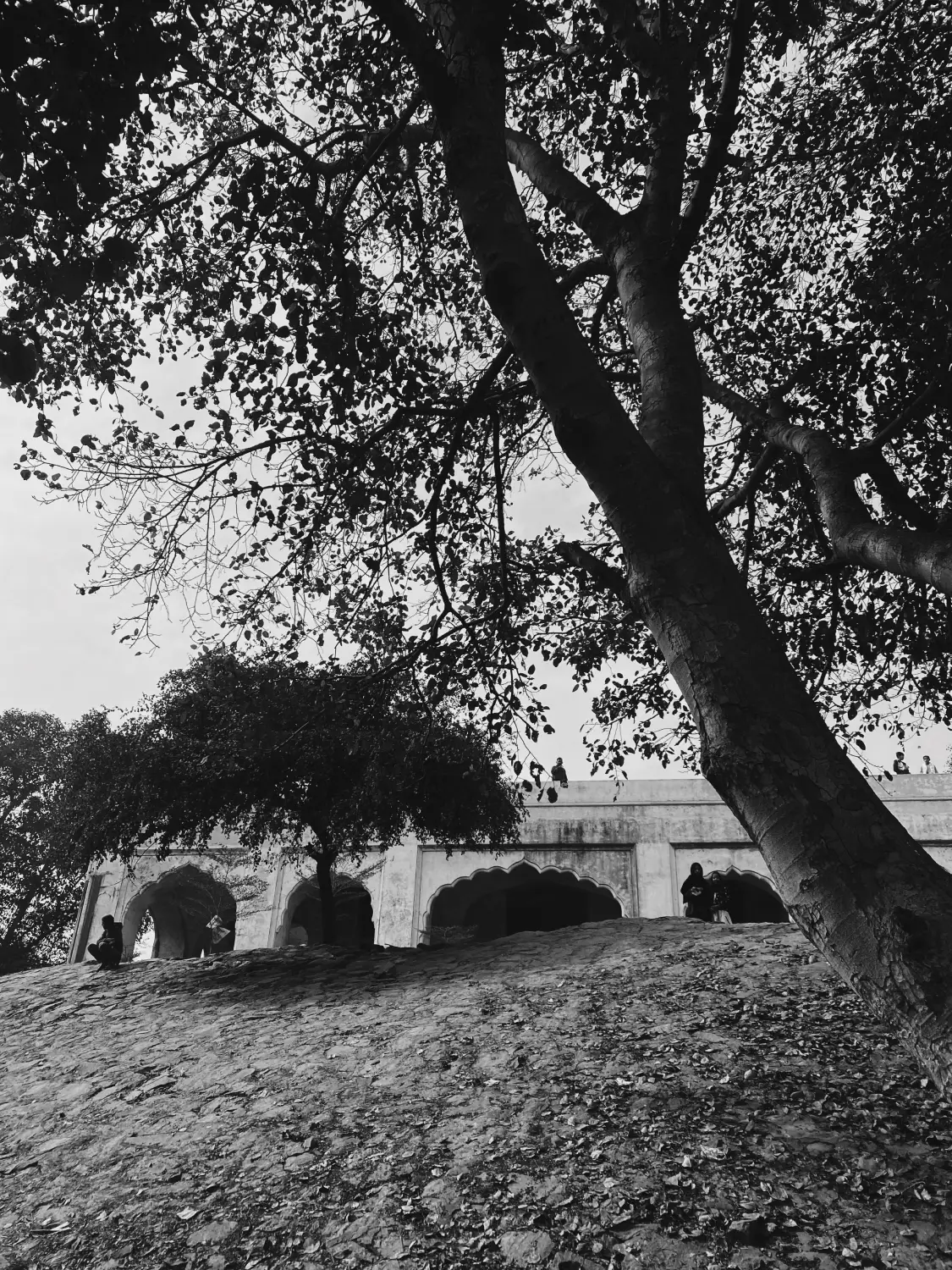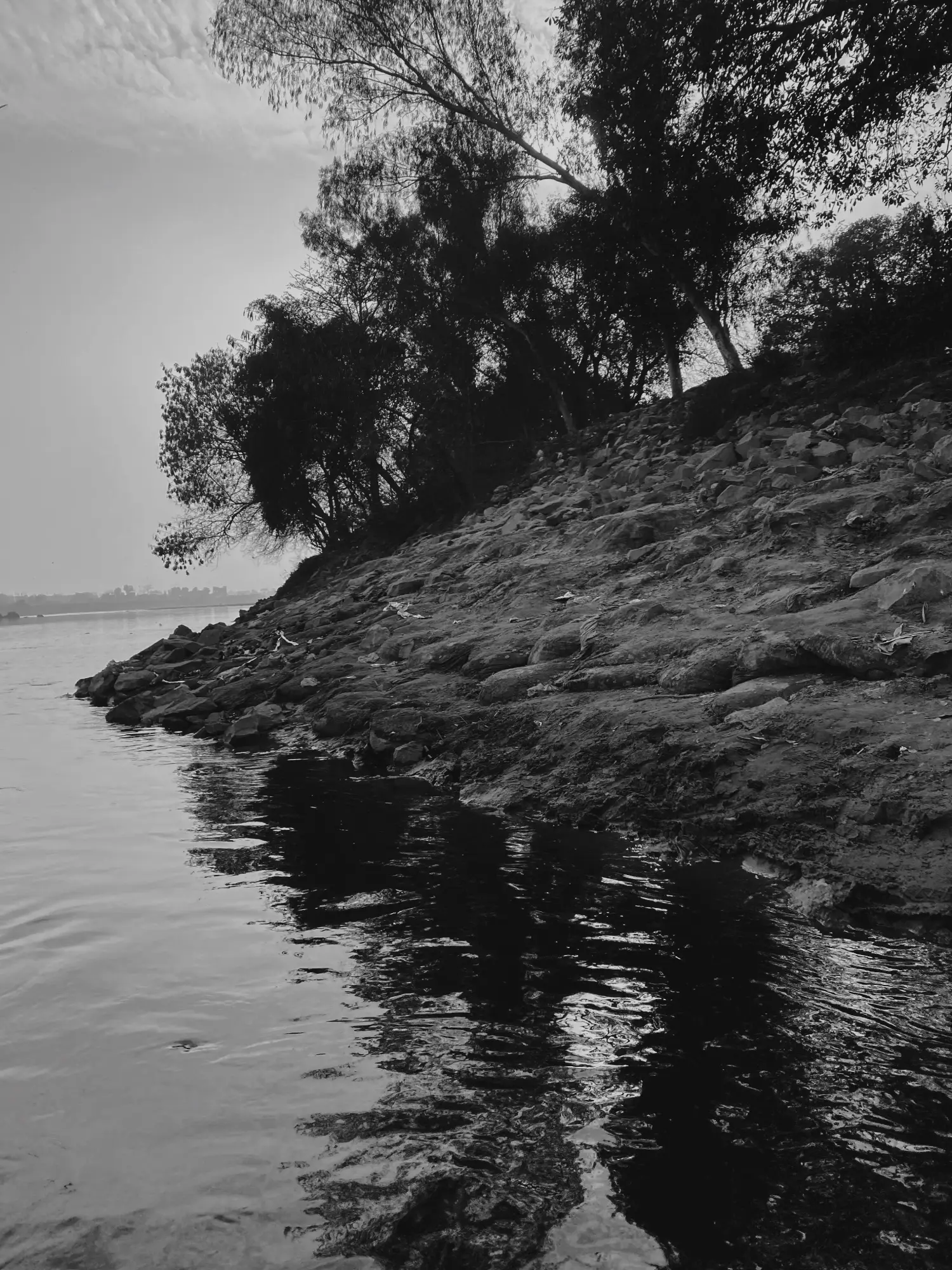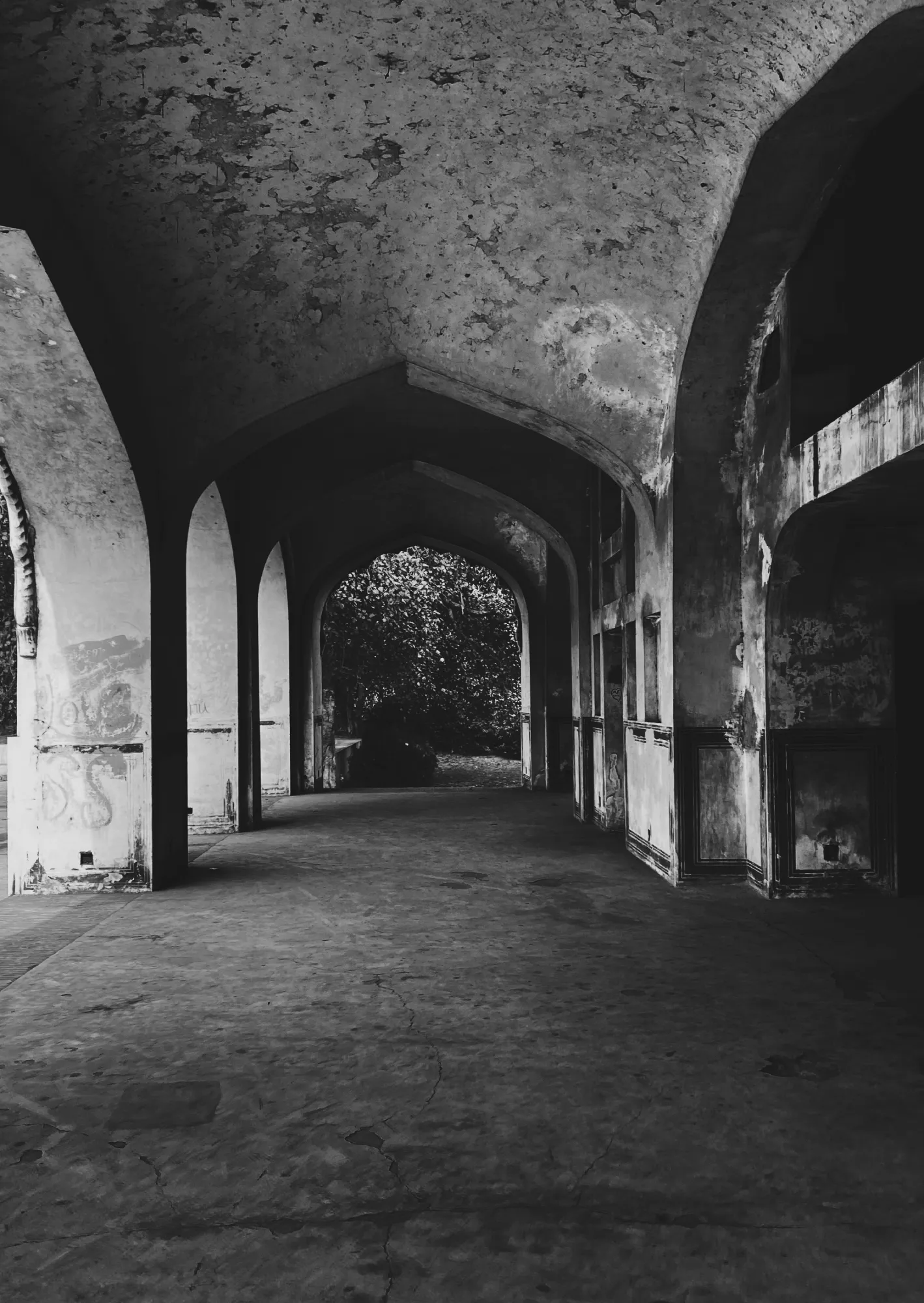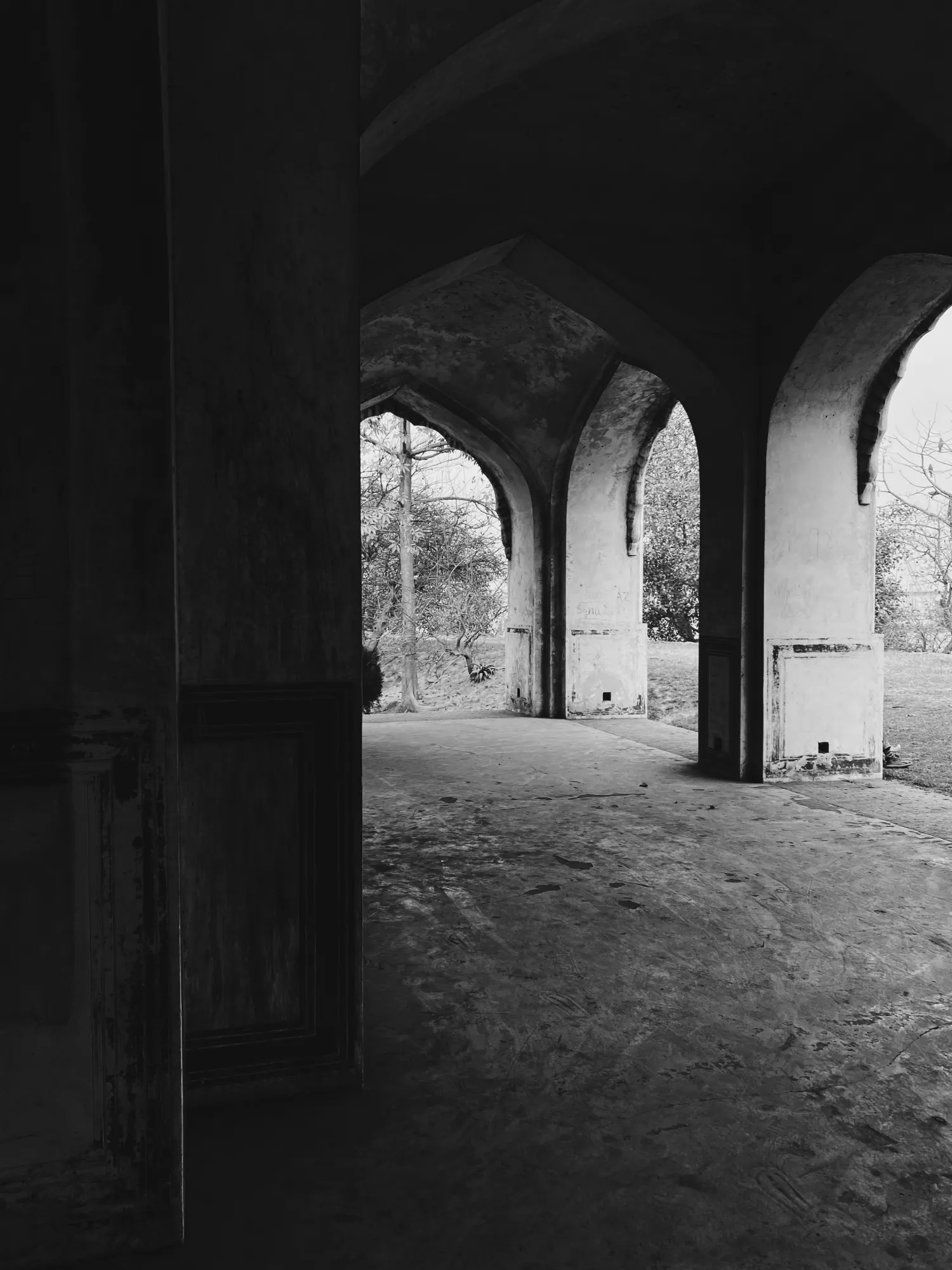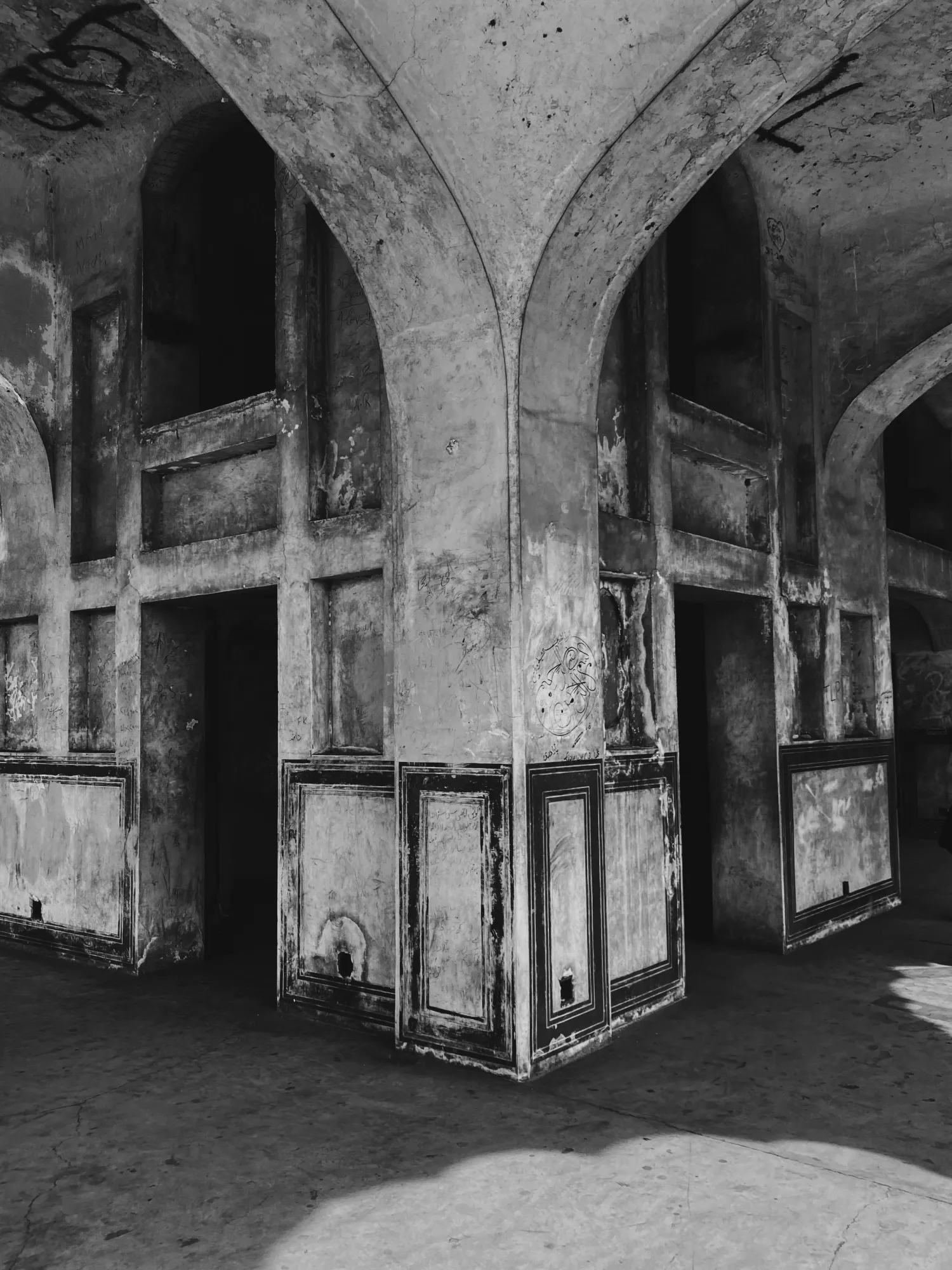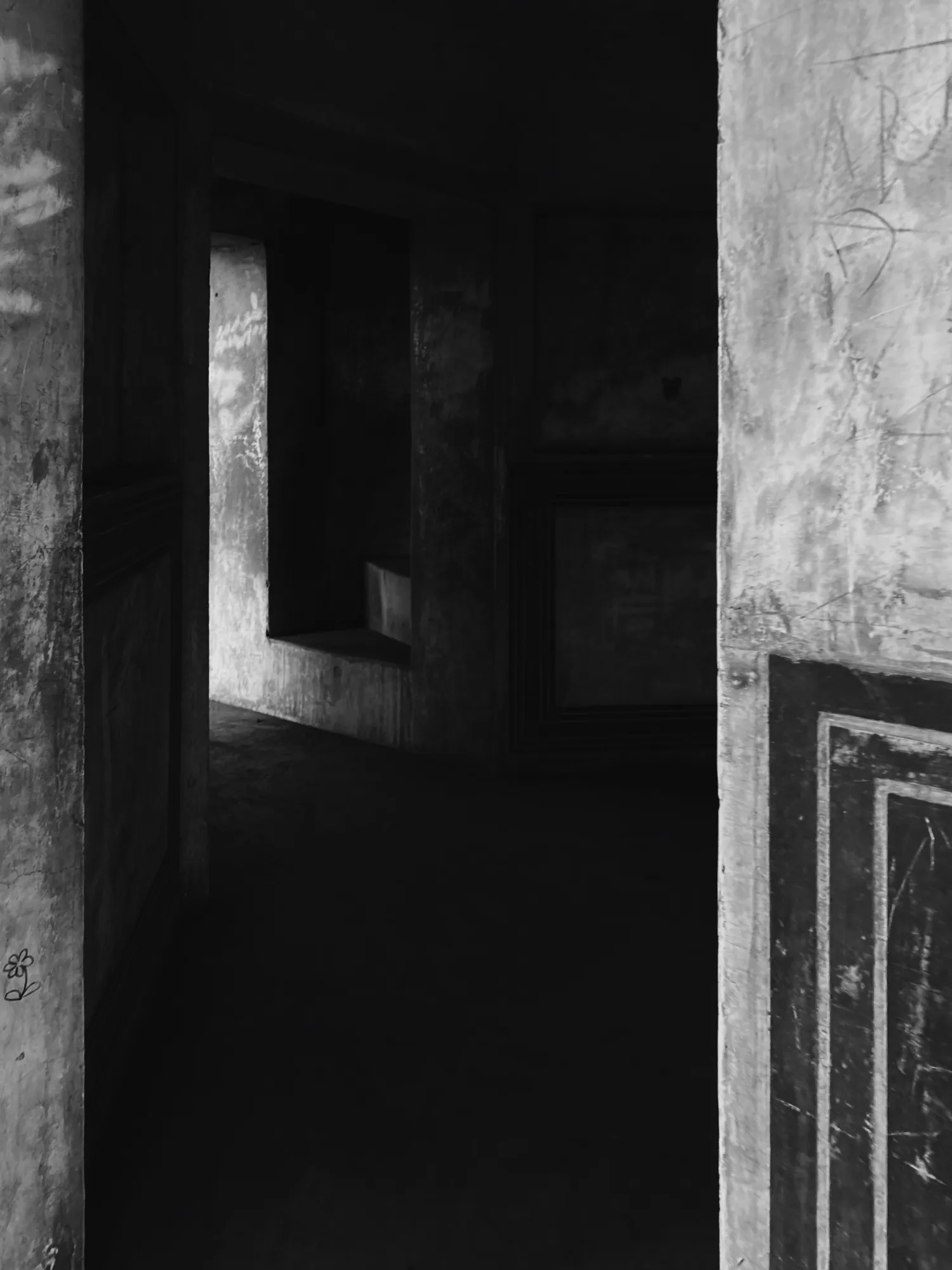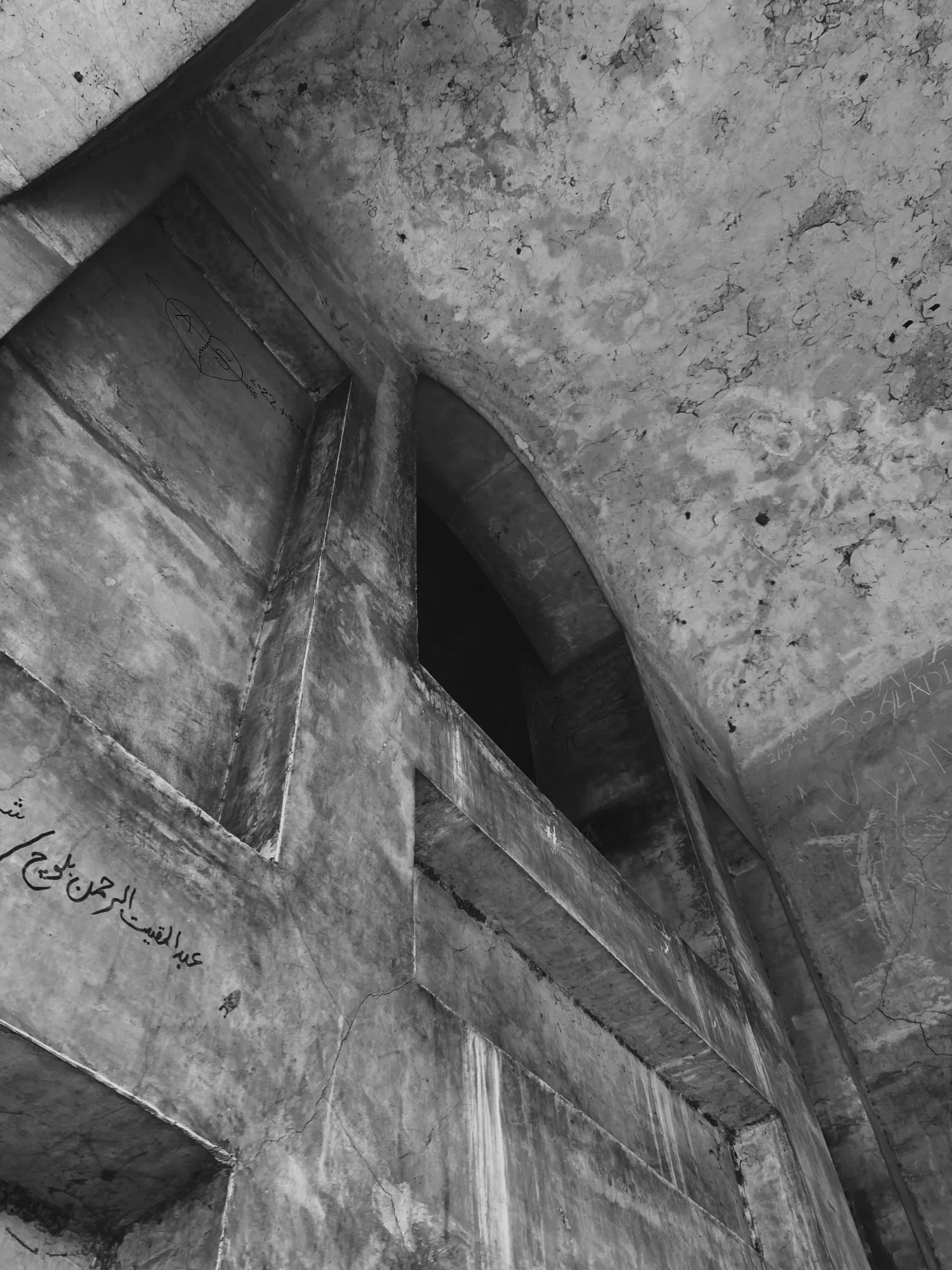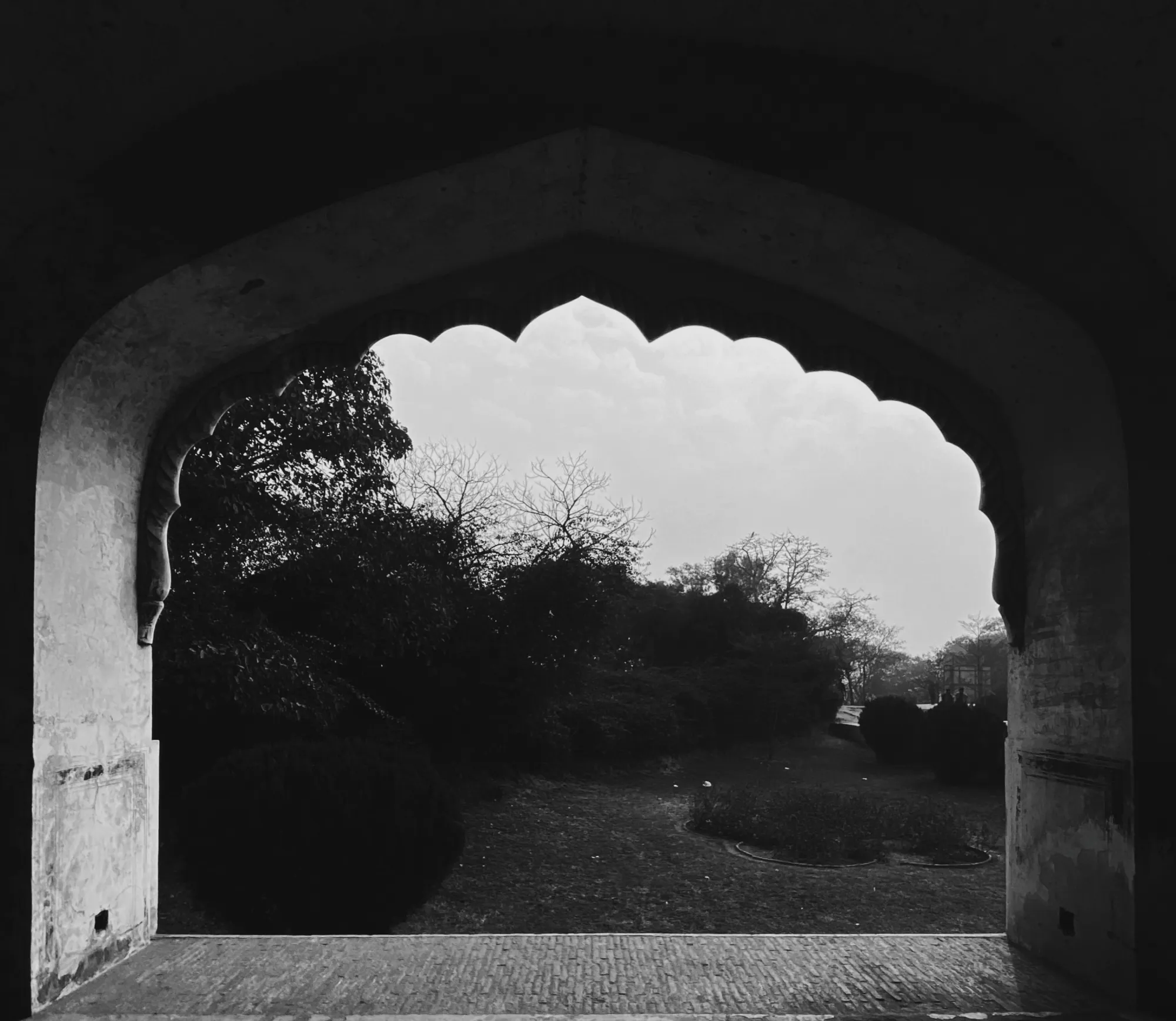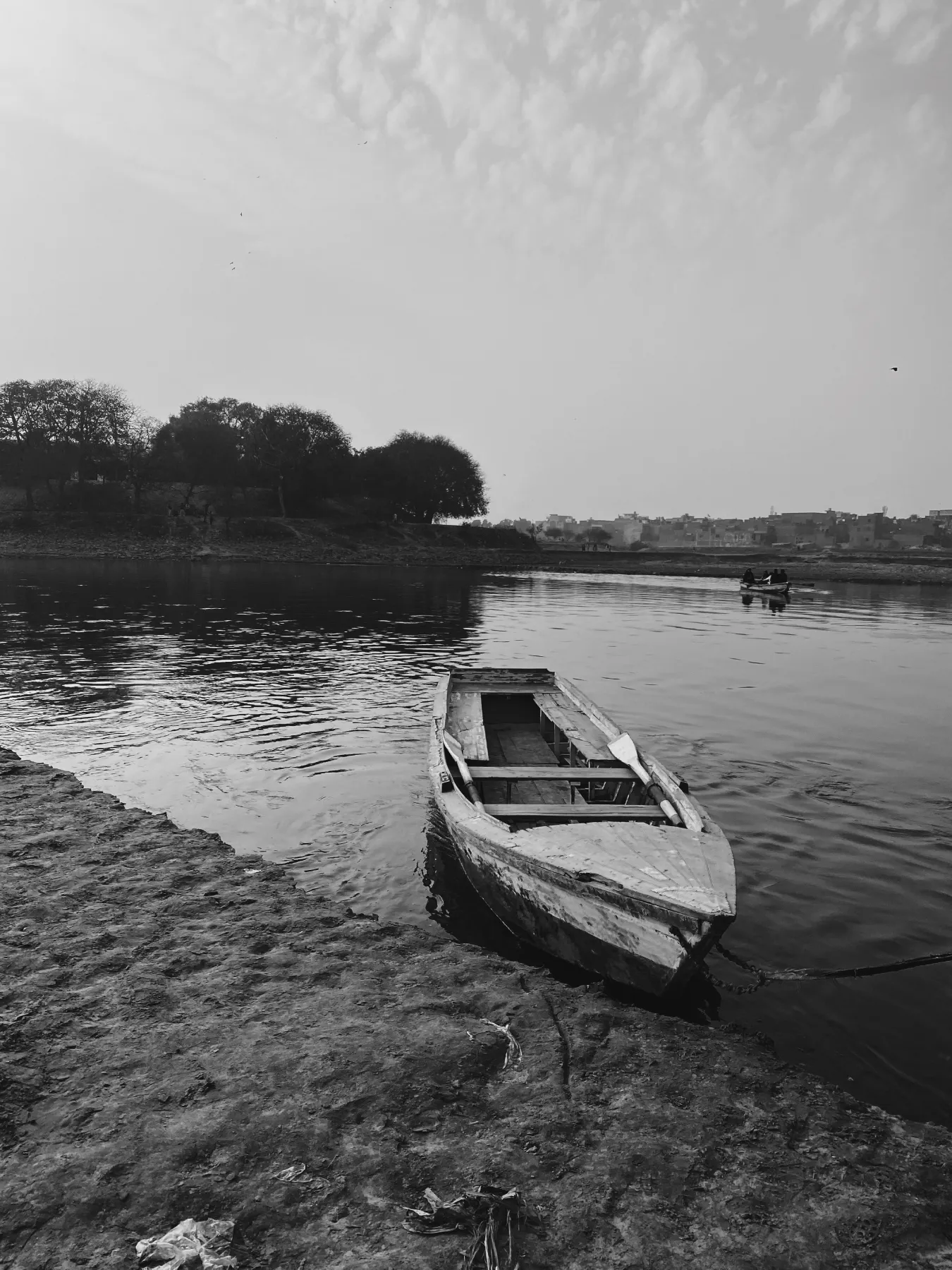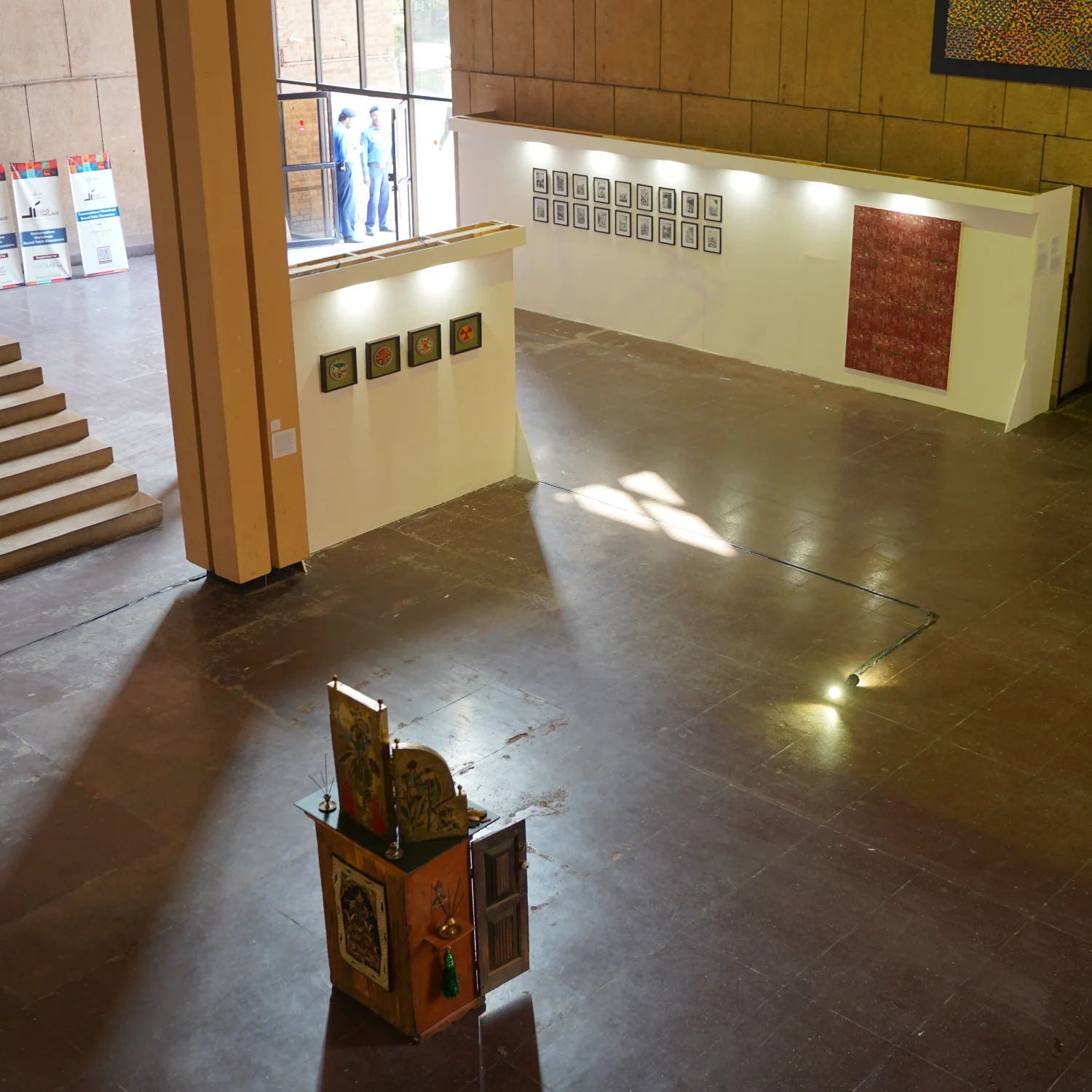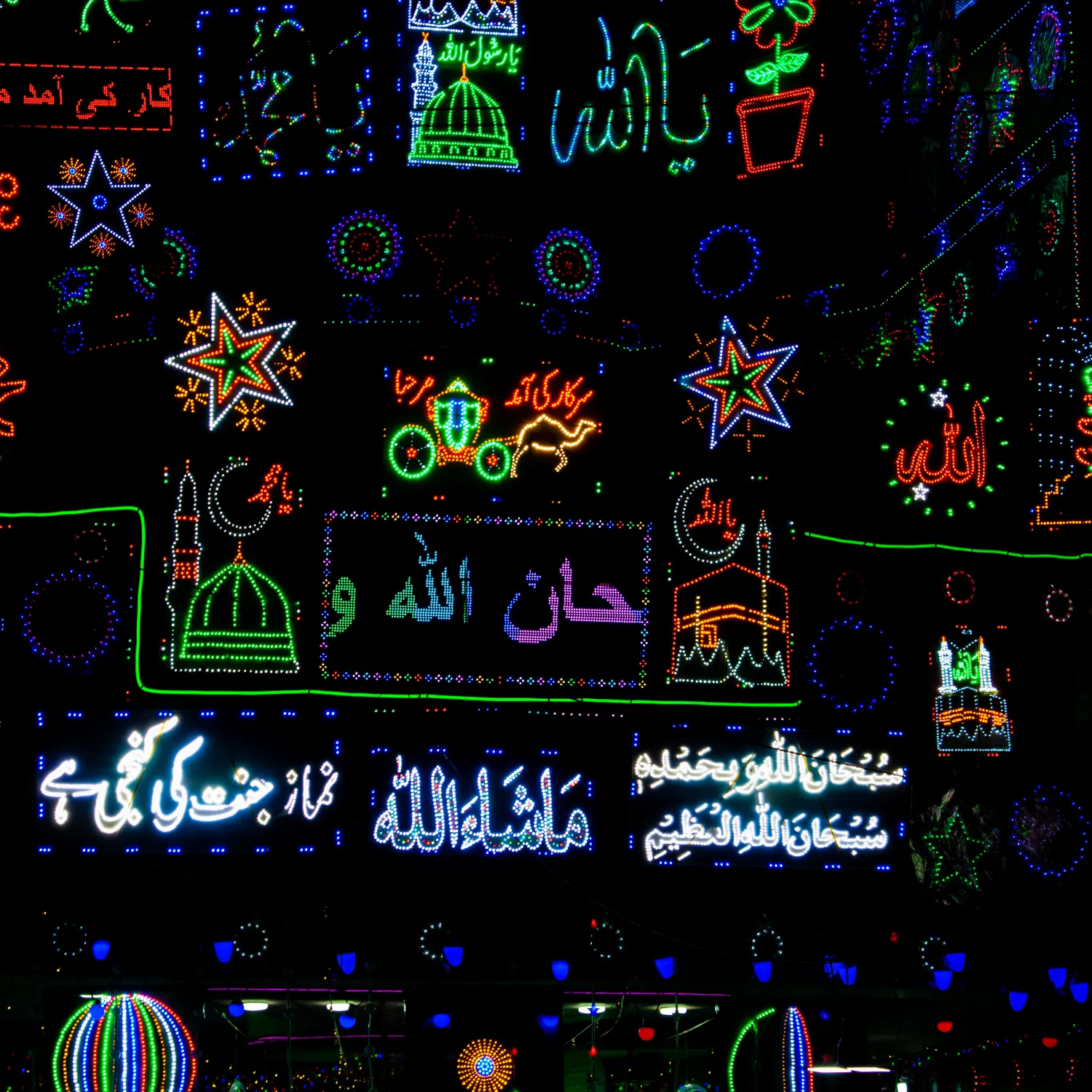“At dawn you leave. The river wears its skin of light. And I traced love’s loss to the origin of light. I swallow down the goodbyes I won’t get to use.” — Agha Shahid Ali
Early one January morning in 2024, a friend and I arrived at the parking space of the Kamran Baradari at the embankment of Ravi. Ravi had once watered empires and watched them fall; it was a witness to power struggles of succession and tales of fratricide and blindness.
We had signed up for a two-hour long walking tour with Lahorenama led by the environmental activist Abuzar Madhu. The tour started with the group crossing the river in two boats to the island that holds one of the earliest structures built by the Mughals in Lahore. Kamran’s Baradari: a summer pavilion named after Mughal Emperor Babar’s son, prince Kamran Mirza. Built in 1540 and conserved on a mound, the Baradari leads to spacious Mughal gardens.
These photographs, part of a longer project on walking and writing about cities, are a musing on the interaction between humans and their environments. It is an exploration of the intersection between the architectural, natural and social. The once pristine walls of the Baradari, which held secrets and stories of exile and lonely would-be kings in their last days are now filled with graffiti—declarations of love, jokes, phone numbers, names.
Inside, time and space are indeterminate, suspended. Corners without lovers, wrappers of crisps devoid of their contents. Someone must have met their lover here at some point; a phone number and name on the walls are all that remain. The faint echoes of my footsteps as I hurried across taking photos felt intrusive.
Outside, by the banks, the world continues to change. Fishermen continue to arrive in the morning; one morning they won’t. Because house builders will have arrived instead—many already have with their cranes and bulldozers.
Only what is absent, is still present.
The Ravi wears its skin of light.
Click images to view in full screen

